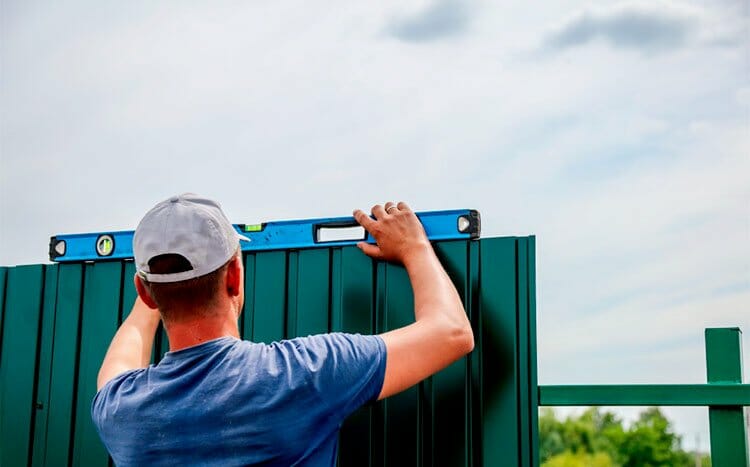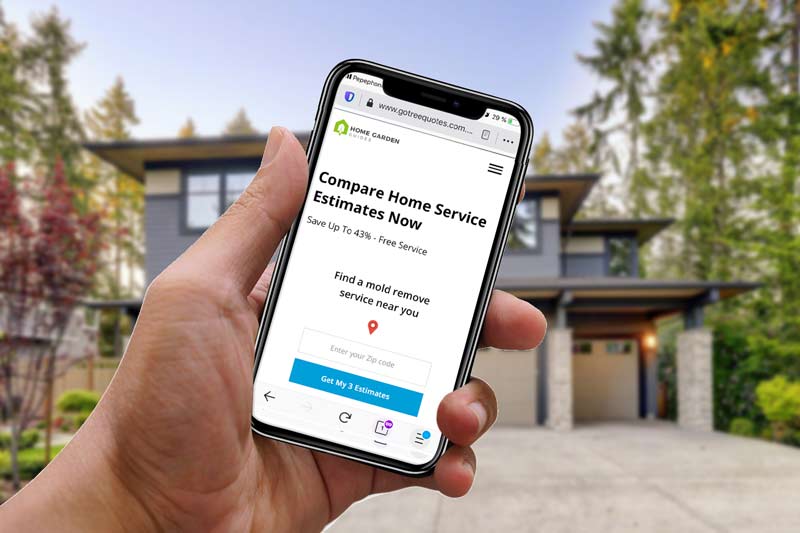Putting up privacy fencing is an excellent method for obstructing unpleasant sights, reducing noise disturbances, and ensuring pets stay within your premises. Furthermore, increasing the height of the fence enhances its ability to achieve these objectives.
Most local jurisdictions impose height limitations on fences which are generally capped at 6ft in residential areas. A privacy fence is normally 8 – 9 ft high, so you may need to seek a permit before replacing a standard fence with a privacy fence.
And in cases where one fails to comply with the stipulated height regulations, penalties like fines are usually imposed. Here is what you should know about privacy fence height limits.

What we cover
ToggleFinding local fence laws
Fence laws are normally set by the state, but some cities have even more specific laws. I would first check your state laws by going to the link below. A faster way would be to just call a local fence installer who will know all the laws inside out.
Take this shortcut
HomeGardenGuides.com is a free service that quickly matches you with the top-voted local fence contractors
These guys know their local laws and can quickly give you advice on the high of a fence and also give you a ballpark figure on cost.
You can get 3 estimates fast by real certified experts in your area in just 2 minutes.
- Scroll to the top of the page and enter your Zip code.
- Answer questions about your fencing job.
- Your details are forwarded to three local experts. They call you with friendly advice and a price for the job if you choose to go that way.
IMPORTANT: There is no obligation to hire. This is a free tool and service to be used at your pleasure.

Fence laws by state
Can I apply to get a higher fence approved?
Yes, you can apply to get a higher fence approved. The approval process is usually stipulated by the local authority, but it usually involves filling out an application form outlining the reasons why you need to install a higher fence, attaching any required documents, and then submitting your application to the relevant local authority.
Once your application is submitted, you will then have to pay the permit application fees. Thereafter, the authority will have a specified number of days to consider your application and whether such an installation will have a negative effect on the public and the neighbors. And if they are satisfied that your application has merit, they will then award you the permit. You can then begin installing the fence.
What is the height limit of a residential fence?
While height limits vary from one local jurisdiction to the next, a front fence height limit of 1.2m(about 4 feet) and a rear fence height limit of 2m (about 6 feet) is usually imposed by most local jurisdictions. And if you need to install a fence that is higher than these height limits, you will need to seek permission from the local authority. This usually involves applying for a building permit.
It is important to note that these height limits sometimes change depending on the type of fence that one is installing, its proximity to intersections or streets, and whether the fence is used to fence off a pool area. The effect of the fence on a neighbor’s habitable room windows and their recreational private open spaces is something that is also considered when it comes to permissible fence installations in residential areas.
Legal regulations regarding fence height
The law in most areas is clear with regards to fence heights: one doesn’t need a permit in order to install a fence that is under 4 feet — if it is a front fence — or under 6 feet if it is a rear fence. It is also consistent with regard to exceptions to this rule. It requires a person to get a permit before putting up a fence if:
- The fence is likely to affect vision at an intersection
- It is higher than the height limit of 7ft.
- It forms part of a swimming pool’s safety barrier
- It is made up of barbed wire
However, the law doesn’t stop there. It also provides guidelines that have to be followed even in cases where one doesn’t need a permit to put up a fence. It gives specific stipulations with regard to the height, distance, and overall dimensions relating to:
- Fences that are next to neighbors’ recreational spaces
- Fences that next to the north-facing windows of neighbors
- Fences near declared stress and roads
When going through the local laws and regulations in your area, it is always important to keep in mind that they are not the only rules that you have to abide by. Homeowners Associations have the power to impose further restrictions.
Therefore, it is imperative that you also familiarize yourself with the fencing rules and regulations that have been put in place by your HOA.
Why is there a height limit on fences?
Most local authorities and Homeowners Associations (HOA) impose height limits on fences for the following reasons.
Aesthetics
Height limits, especially those that are imposed by HOAs, help to create a semblance of uniformity in a neighborhood. This enhances the aesthetic appeal of an area. It also prevents situations where neighbors install extremely high fences that are meant to annoy their neighbors.
Neighborly considerations
Anyone who owns property has a right to fully enjoy its use. Extremely high fences can infringe these rights especially if they are blocking a view, blocking the sun, or even the functionality of a neighbor’s windows.
High fences can create a “fortress effect” and this may make the adjoining properties uncomfortable to live in. They may also be so much of an eyesore to the point where they affect the valuation of neighboring properties. Therefore, having height limitations can go a long way toward reducing conflicts in residential areas.
Safety
Corner lot fences have more stringent height limitations mainly because of the effect of having high fences in these areas. A high fence in such an area will impede the visibility of drivers. Pedestrians who use the road or street at these points will also have a harder time seeing traffic, and this may lead to accidents.
Therefore, in such circumstances, having clear guidelines with regard to height limitations will help to prevent blind spots. This can go a long way towards improving the safety of your loved ones and the public at large.
Do I need a permit to construct a fence?
Generally, you don’t need a permit in order to construct a fence. However, you may need one if you are planning on:
- Installing a fence that is higher than 7ft. — in most jurisdictions. In some jurisdictions, you can install a fence that is as high as 8 feet without needing a permit.
- Installing a fence that is intended to be part of a pool enclosure
- Installing a fence near a declared street or road
- Installing a masonry fence
- Installing a fence near a public area
Does lattice count towards fence height?
Yes, lattice counts towards height. For height limitation purposes, it is considered to be part of the fence and hence shouldn’t exceed the stipulated height.
Can I put up a 6ft. fence in my front garden?
Yes, you can put a 6ft. fence in your front garden if you get a permit to do so. This is because most local authorities and HOAs only allow for the installation of front garden fences that are less than 4 feet high. Therefore, anyone wanting to put up a taller fence has to go through the building permit application process.
Do I have to tell my neighbor I am putting up a fence?
No, you don’t have to tell your neighbor that you are putting up a fence if the fence is on your side of the property line.
However, it is always good to do so as it will help to reduce the chances of acrimonious future disputes. This is because it illustrates goodwill on your part. Therefore, courtesy of simply informing them could end up saving you from the headache that comes from mediation and other dispute resolution procedures like litigation.
Use this free tool to find fence contractors
If you need help figuring out the fencing rules and regulations that apply in your area, the best place to start your search is HomeGardenGuides.com. It offers a free service that quickly matches you with the top-voted local expert fence contractors.
Using the website, you can get 3 estimates fast by real certified experts in your area in just 2 minutes. Here is how it works.
- You scroll to the top of the page and enter your Zip code.
- Answer questions about your security fence needs
- Your details will be forwarded to three local experts.
- You will then receive a price estimate for the job and some friendly advice.
IMPORTANT: There is no obligation to hire. This is a free tool and service to be used at your pleasure.












